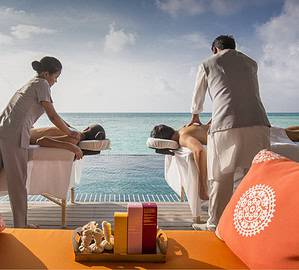When we think of travel, it’s usually associated with excitement, adventure, and exploration. And while traveling enables us to experience different cultures and learn new things, it certainly isn’t stress-free. Enhanced airport security, long-travel lines, and inadequate preparation can, over time, affect mental health.

Chronic stress disrupts almost every system inside you, causing headaches, anxiety, depression, and a suppressed immune system.
However, no matter the circumstances, putting a positive spin on things can help generate solutions and relieve anxiety. Whether you’re flying first-class or taking a road trip through Pacific Coast Highway, implement these stress reliever trips to make the most of each passing moment.
Make the Most of Home the Night Prior
If you’ve correctly prepared a few days prior, use your last day to relax. Several activities can reduce stress, like a gentle walk or socializing with friends. Light exercise, having fun, and sleeping enough can drastically lower cortisol levels, bringing a new sense of optimism once your journey begins. A good night’s sleep will do wonders in keeping you refreshed and alert the following morning.
If you’re prone to anxiety or cannot shake your preflight nerves, consider THC products. THC has shown to temporarily lessen anxiety, depression, and stress when applied in lower doses. With a physician’s recommendation, you can utilize THC to subside nerves and improve mental state. When purchasing cannabis buds, make sure to have a weed grinder on hand for efficient grinding. A weed grinder speeds up the breaking process for an easier wrap.
Adequately Plan for The Journey Ahead
Humans are impulsive creatures, regularly taking action on a whim for short-term gain. While booking the first cheap flight you spot is a cost-effective way to travel, it shouldn’t prioritize over more critical events in your life. If you have work deadlines or other commitments during or right after your vacation, complete them first.
Fulfilling your responsibilities helps with a stress-free journey, maximizing your enjoyment throughout every new encounter. Furthermore, anxiety is highly contagious, as we naturally mimic strong emotions around us. When parents are fearful or worried, it’s easily transferable to their children.
Planning also pertains to preparing for airline delays, packing, hotel reservations, and required medical vaccinations. For potential plane delays, do a quick search on the airline’s website to check for any announcements. This can potentially save several hours waiting at the view platforms.
Having a Positive Mindset
Waiting in taxi lines and general travel delays occur so frequently that it’s not that big of a deal. Acknowledging your circumstances enables you to cope better, so you see the best of every situation. If bad thoughts continually persist in your mind, you’ll quickly have a pessimistic outlook that could increase stress levels and diminish your exploration.
When suffering from negative emotions, begin by identifying what’s the cause. Perhaps you tend to consistently blame yourself or only concentrate on the negatives instead of the positives. Throughout your trip, quickly evaluate what’s going on internally. If thoughts are self-destructive, encourage yourself and firmly establish things are fine. You’ll promptly find that solutions come your way a lot faster.
Deep Breathing
If you have a moment to spare, practicing deep breathing provides a natural remedy to keep calm. This technique has numerous benefits, such as improving posture, increasing blood flow, and relieving anxiety. For people with insomnia, medical professionals often recommend this technique to help with a good night’s sleep. Feel your nerves dissipate by following these steps:
- Comfortably position yourself by either lying down or sitting back
- Place one hand on your tummy while putting the other lightly on your chest. Your chest should remain in position during the exercise.
- Heavily breathe in through your nose or mouth, and breathe out through your lips. Exhale as much air as possible.
- During the process, monitor how your body reacts. As your muscles relax, you should feel a calming sensation.
- Continue this exercise 3-10 times until you feel fully relaxed.
This breathing exercise is particularly convenient because it doesn’t require a medical professional in the room, equipment, or special training.
Have Travel Insurance
Travel insurance protects you from financial loss that can typically occur during your trip. Losses can be minor and substantial, like delayed luggage after your flight or accidentally injuring yourself overseas. It’s especially beneficial as you’ll be referred and covered by medical care providers abroad.
Paying a monthly premium gives travelers peace of mind, covering costs if things go south. Once you’ve submitted proof of loss and your claim is approved, your insurance company will reimburse you.
Credit cards also offer travel protection, but understanding what coverage you’re eligible too is imperative. For example, if you’re injured while under the influence of controlled substances, your insurance may refuse to cover medical treatment costs. Always check what coverage your insurer provides.



